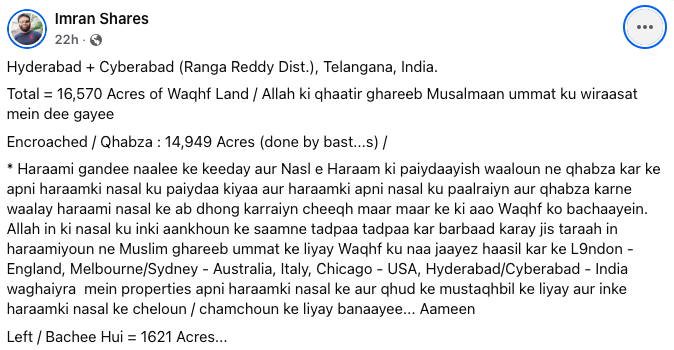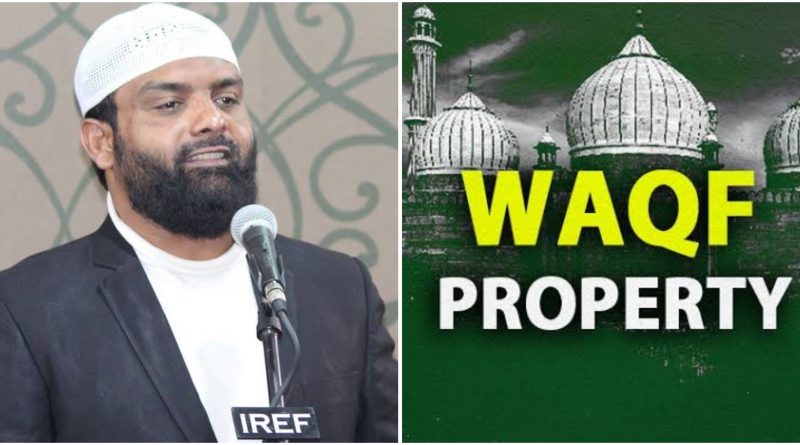Zakir Naik’s Student Blasts Indian Muslim Leaders Over Waqf Land Scam
Hyderabad — Dr. Zakir Naik’s student Brother Imran on Thursday, posted a fiery Facebook message accusing corrupt Muslim leaders of India of illegally embezzling Waqf lands and nurturing “illegitimate generations” on stolen charity land.
A storm is brewing on social media following a fiery post by Brother Imran, also known officially as Mujtaba Hussain Siddiqui, a Indian-origin Islamic preacher based in the United States, lashed out at corrupt Muslim leaders and their supporters for the massive encroachment of Waqf properties in the Indian state of Telangana.
Waqf lands—charitable endowments meant to benefit the Muslim community, particularly the poor—have long been plagued by corruption and mismanagement. According to Imran’s post, a staggering 14,949 acres out of a total 16,570 acres of Waqf land in Hyderabad and Cyberabad (Ranga Reddy District) have been illegally occupied.
In language that was both impassioned and inflammatory, he condemned those responsible, calling them “bastards” and accusing them of nurturing “illegitimate generations” on stolen charity land. He alleged that these individuals have used embezzled Waqf properties to acquire luxurious assets and real estate not only across India but also abroad in cities such as London, Melbourne, Sydney, Chicago, and Rome.

“These criminals seized land meant for the poor Muslim community and turned it into personal wealth,” Imran wrote, adding a fierce prayer for divine justice—“May Allah destroy their generations before their eyes just as they destroyed the hopes of the poor.”
The remaining unencroached land, according to him, is only 1,621 acres—a fraction of what was originally intended for communal welfare.
His post has drawn both support and criticism. Some social media users praised his courage in speaking out against entrenched corruption, while others questioned his use of harsh language and called for more constructive forms of activism.
The issue of Waqf land encroachment is not new in India, and activists have long demanded stronger protections and transparency in its management. However, voices like Brother Imran’s bring renewed attention—albeit in polarizing fashion—to a deeply rooted problem.
As the debate intensifies, the question remains: will this spark meaningful reform, or simply add fuel to an already divided discourse?


